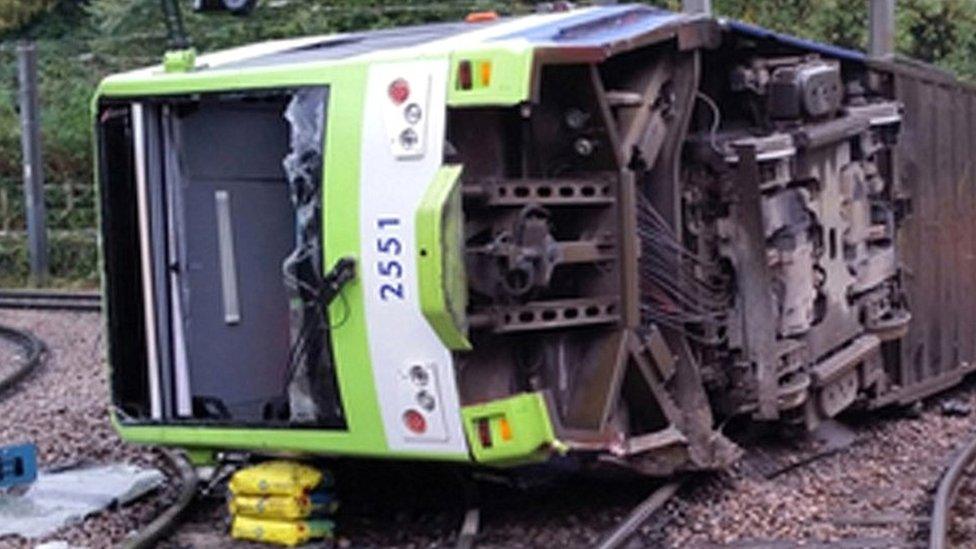Croydon tram crash: Coroner calls for automatic brakes
- Published
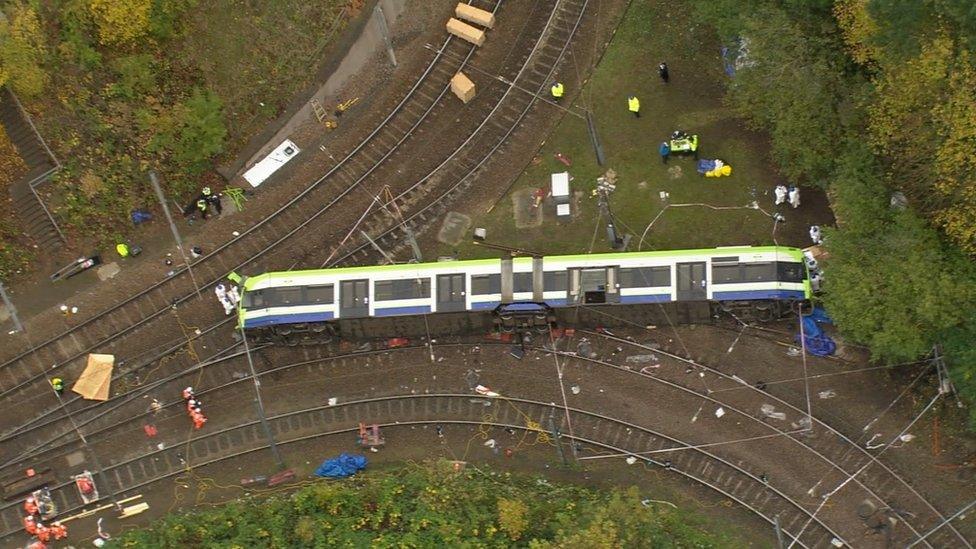
Seven people were killed when the tram derailed near Sandilands tram stop
A coroner has recommended trams have automatic braking systems to prevent speeding following a crash in Croydon that killed seven people.
More than 50 people were injured when the tram tipped over and spun off the tracks near Sandilands tram stop in south London, early on 9 November 2016.
The tram was travelling at 73km/h (45mph), more than three times faster than the speed limit.
In July an inquest jury found the crash was an accident.
South London senior coroner Sarah Ormond-Walshe has issued her findings calling on the government to reassess whether automatic braking systems - commonly used on trains - should be introduced on trams.
The crash resulted in the deaths of Dane Chinnery, 19, Philip Logan, 52, Philip Seary, 57, Dorota Rynkiewicz, 35, and Robert Huxley, 63, all from New Addington, and Mark Smith, 35, and Donald Collett, 62, from Croydon.
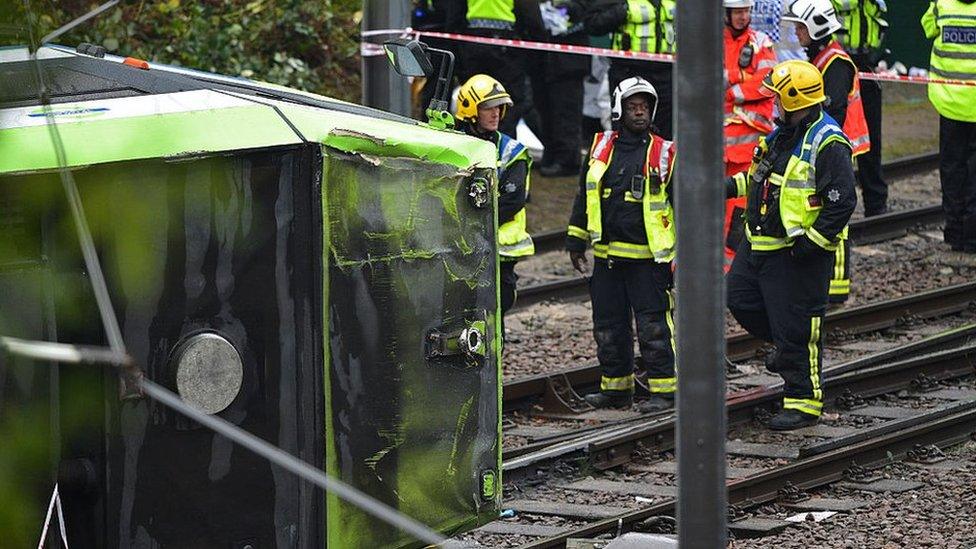
In addition to the six men and one woman who died, 51 passengers were taken to hospital, eight with life-changing injuries
In total Ms Ormond-Walshe issued four prevention of future death reports.
In them she calls on the government to look at strengthening tram doors. The seven passengers who died were all thrown through the windows or doors of the tram, according to a Rail Accident Investigation Branch investigation.
Ms Ormond-Walshe also suggested a nationally funded tram safety passenger group - in the model of London TravelWatch.
She also recommended the government look at creating an anonymous reporting system across all tram operators to allow staff to raise health, safety and wellbeing concerns.
She sent the report to the Department for Transport and the Light Rail Safety Standards Board.
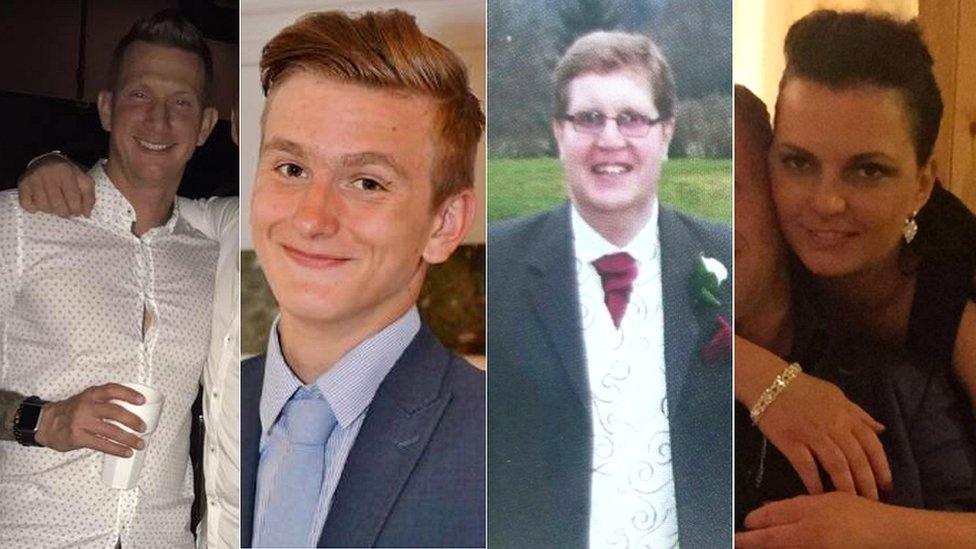
Mark Smith, Dane Chinnery, Phil Seary and Dorota Rynkiewicz (l-r) all died in the crash
The families of victims killed in the Croydon tram crash supported the coroner's recommendations.
Jean Smith, 64, mother of Mark Smith, said: "I am pleased the coroner has adopted most of the changes that the families campaigned for.
"It is outrageous that people travelling in trams could suffer the same terrible death that Mark did as they simply haven't strengthened the doors.
"While the coroner's recommendations are welcome, I am still angry and upset that nobody has been held accountable for what happened to my son and everybody else on that tram. It hurts more than words can say."
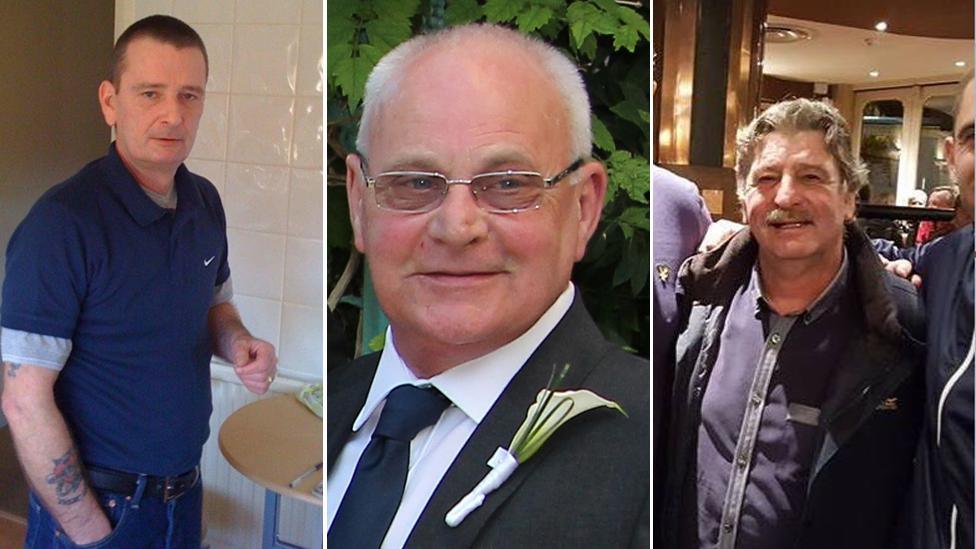
Philip Logan, Donald Collett and Robert Huxley (l-r) were also killed
The families will now meet Baroness Vere, the minister with responsibility for light rail, "to press her to ensure that all these recommendations are implemented" according to the group's lawyer, Ben Posford.
Following the inquest into the crash it emerged Ms Ormond-Walshe refused to call a number of people who the victims' families wanted to give evidence about alleged safety failings.
The nine-week investigation did not speak to senior managers of operator Tram Operations Ltd (TOL) - a subsidiary of FirstGroup - and Transport for London (TfL), plus other experts.
The families said they felt "justice had been suffocated".
'Number one priority'
A Department for Transport spokesperson said:"Our thoughts remain with families and friends of those who lost their lives in this terrible tragedy.
"We welcome the coroner's findings and will carefully consider its recommendations. Since 2019, we have provided more than £3m to the Light Rail Safety Standards Board to help prevent such tragedies."
Following the coroner's recommendations, Mark Davis, TfL's general manager for London Trams, said: "Safety will always be our number one priority, and we continue to review our operation and to work with the wider tram industry to introduce any further measures that may benefit the people who rely on our services.
"We have confirmed that any future tram designs will incorporate strengthened doors and have also committed to work with Alstom to see whether it is possible to retrofit the existing fleet.
"We will be providing a full response to the Senior Coroner's Prevention of Future Deaths report."
Related topics
- Published22 July 2021
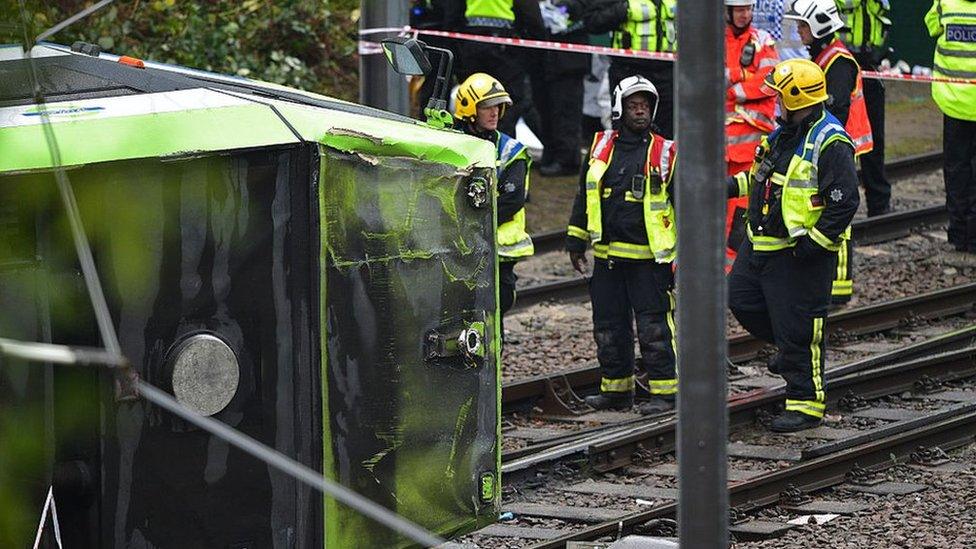
- Published19 May 2021

- Published18 May 2021
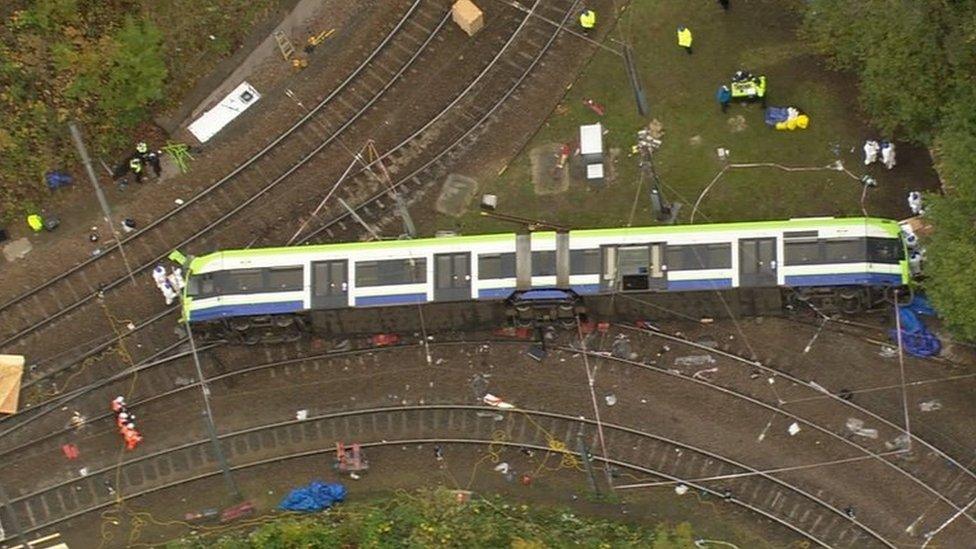
- Published9 November 2016
